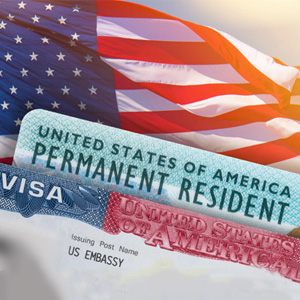
Who Files For O-1 Petition, The Employer Or An Individual?
Generally, it has to be an employer who files the petition for an O-1 Visa.
Which O-Class Visa Should I Apply For?
The O-Class Visa you should apply for depends on the category you belong to. There are four different classes of Visas: O-1A, O-1B, O-2, and O-3.
- An O-1A Visa is for individuals with extraordinary ability in the sciences, education, business, or athletics. If you have a remarkable ability in any of these fields, you could apply for an O-1A.
- An O-1B Visa is for individuals with extraordinary ability in the arts or the motion picture television industry, such as actors, models, and musicians
- Immigration Attorney Magdalena Cuprys has done many O-1B Visa petitions for Telenovela actors.
- An O-2 Visa is for individuals who accompany those with O-1 visas (both O-1 A’s and O-1 B’s).
- An O-3 Visa is for individuals who are the spouses or children of O-1 and O-2 Visa holders.
What Are The Benefits Of Having An O-1 Visa?
The benefits of having an O-1 visa are that you can work in the United States for the time that you are given the O-1 Visa, and you can apply for Adjustment of Status after having that O-1 Visa for as little as one year.
What Are The Requirements for an O-1 Visa?
An O-1 Visa’s primary requirement is to prove that you are someone of extraordinary ability in your field.
What Constitutes Evidence Of An Extraordinary Ability?
“Extraordinary ability” is a broad term and can encompass a wide range of situations. For example, proof of your extraordinary ability could be the number and kinds of contracts you’ve held in your field.
If you’re an actor or an athlete, your extraordinary ability could prove that you acted in movies, television shows, or played sports on the national or professional level.
Proof of your extraordinary ability in the sciences or business could be your job history, that you’ve participated in conferences as a speaker, reference letters, or seminars that you’ve held.
Alternatively, an extraordinary ability could be proven if you have people in your field write letters or provide attestations that you are someone of extraordinary ability in your area.
May A Spouse Of An O-1 Visa Holder Work In The US?
Your spouse may work in the US if they obtain their O-3 category of Visa.
Can You Transfer An O-1 Visa?
You cannot transfer an O-1 Visa.
Does The O-1 Visa Allow Dual Intent?
An O-1 Visa allows dual intent. Dual intent is when you come to the United States to work in your capacity with the plan to apply for residency later on. For example, at the time of application, you may just come to the US for three years to work with your O-1 Visa. Then at the end of that three-year contract, you may have the intent to also remain in the United States and apply for residency.
Alternatively, you may have a different petition pending. For example, let’s say your husband is a US citizen, so you initially have an O-1 Visa status. Eventually, you plan to adjust your status to a lawful permanent resident based on a different Visa petition. In this case, you’re allowed to have dual intent on an O-1 Visa because you intend to come into work temporarily but hope to adjust your status and become a permanent resident.
How Much Time Should I Allow For The Process Of Obtaining An O-1 Visa?
You should expect it to take seven to nine months to obtain an O-1 Visa. However, for the O-1, there is an option for premium processing. Premium processing is when you pay an extra fee to have the O-1 decided in two weeks.
How Much Is O-1 Visa Premium Processing Fee?
- The regular fee for processing a Visa petition is $460.
- The O-1 Visa’s premium processing fee is $2,500.
- The anti-fraud fee for the filing is $500.
Does The Premium Processing Fee Guarantee That You Will Be Approved For An O-1 Visa?
Paying the $2,500 premium processing fee is no guarantee that you will get a Visa approval. It only gives you the opportunity to expedite a decision from the USCIS, giving them two weeks to decide.
If you want to pay a premium price, it’s important to note that immigration officials will typically send out a request for additional evidence right before the 14-day finish line. This request for additional information often delays the actual two-week processing time. In fact, the USCIS is notorious for sending these requests on day 14 instead of making an actual decision.
If the USCIS requests additional evidence on day 14, they give you time to respond. After you respond, they have 14 more days to decide. Although this may seem like a roundabout way to extend their decision timeline, it is generally still faster than filing without the premium processing.
For more information on O-Class Visas In The United States, an initial consultation is your next step. Get the information and legal answers you seek by calling today at (305) 907-6151.

Attorney Magdalena Cuprys is a seasoned immigration lawyer based in Orlando and Coral Gables, Florida. With three languages under her belt and years of legal experience working with immigrants of all kinds, she brings considerable experience and insight to the field and works hard to explain immigration concepts, empower future citizens, and keep current and prospective immigrants up to date on US immigration law.
Connect with her firm, Serving Immigrants, to stay updated on the latest developments in United States immigration law and gain valuable insights needed to navigate the challenging legal landscape of immigration in Florida.
Call Us Now To Get Your Case Reviewed (305) 907-6151